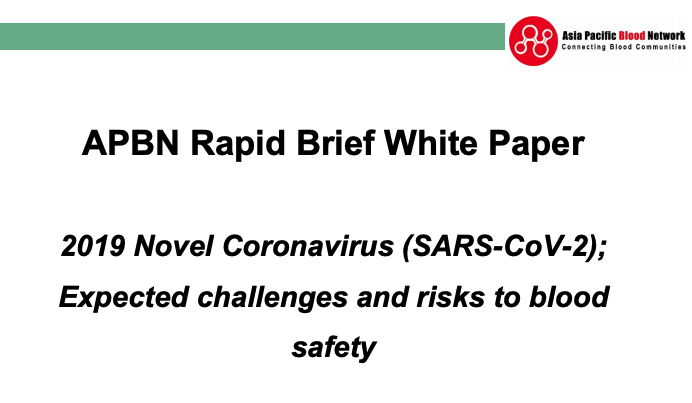COVID-19: Expected challenges and risks to blood safety

Asia Pacific Blood Network Rapid Brief White Paper, prepared: 17th February 2020
Executive Summary: The novel coronavirus that emerged in 2019 (SARS-CoV-2) in China is a significant new public health threat in the Asia-Pacific region. Whilst there are considerable information gaps at this time, experience with similar respiratory coronaviruses (SARS-CoV and MERS-CoV) suggest that SARS-CoV-2 has the ability to impact significantly on blood supply through donor deferrals, illness, public health requirements of quarantine and reduced staff and donor availability. SARS-CoV-2 has not been confirmed as transfusion-transmissible, and viraemia has only been detected in unwell patients who would not be eligible to donate blood. Options to decrease the risk of transfusion transmission of SARS-CoV-2 include exclusion of at risk donors, quarantine of blood components, pathogen reduction or testing. The appropriate risk reduction strategy needs to take into account the local epidemiology, risk of transfusion-transmission in the context of the overall burden of disease, the public health response, blood supply sufficiency, operational impacts and cost considerations. Given that the infectious risk to blood safety is theoretical, any precautionary exclusion of at risk donors should be regularly re-evaluated with further information as the epidemic progresses. On the other hand, blood product sufficiency due to decreased availability of donors is a significant potential or real risk where local transmission is widespread and blood services should consider the sufficiency risk early to enable preparedness and response.
